There are many factors that cause piano students not to practice. It is not necessarily that they don't want to practice, per-se. In part, students from this generation (which I will refer to as the fast food generation) are very actively involved in the arena of life. They are on a never-ending treadmill where they have little or no time to spare. Some, because of their parents, friends, and others, have crammed too many extra-curricular activities into each day, leaving them with no time to do anything else.
This cramming effect may give them "piano cramps" where their piano practicing gets pushed aside, is poorly done, overlooked, discarded, rejected, or ignored because they have chosen to focus their attention on something other than their musical instrument as a priority for their time. In a way, the student turns their back on practicing the piano because they're backed up against the time-table. They have filled each spare hour of each day with good activities. It is not that they are doing bad activities or are inactive (for the most part), they are no longer choosing between good and bad ways to spend their time - they are choosing between good, better, and the best way to spend their time, which varies for everyone depending on their interests, environmental influence, peer pressure, desire, etc.
There are some piano students who have more than enough time to practice and don't simply because they would rather watch T.V., play video games, or not do anything at all. I have found, in my teaching, that these students are more the exception than the norm. Generally speaking, students are busily doing homework, running back and forth from extra-curricular activities, such as karate lessons, soccer games, basketball games, football, baseball, hockey, track, dance, cheer leading, school plays, etc., and it never seems to end. Students try to do everything to please everyone and want it all. Many students want to be everything, but they want everything now. They don't want to wait for anything or attempt to do something which requires a great deal of effort and time.
This is why I refer to them as "the fast food generation". Society has propelled them to embrace impatience. They expect quick results, one hour dry cleanings, developed film in an hour, instant voice messaging, instant emails, text messaging, uploads, downloads, and the list goes on. Their generation has grown up with faster connections, quicker programing, how to do it all in 5 easy steps, and the quick and easy way to success, wealth, knowledge, and anything you want.
This is a wonderful goal and it is very important for the students to be well - rounded and learn as much as they can and accomplish as much as they can - but not at the expense of not being extensive and thorough by being too hasty.
Well meaning students who intend to practice religiously, day in and day out, too often have additional activities pop-up. Some are planned and some are spontaneous. Music students must be well-rounded. A teacher cannot and should not expect their piano students to solely focus all of their time and energy on playing the piano, unless the student has stated they want to solely focus all of their time and energy on playing the piano so they can become concert pianists - at which point the student should be enlightened that even concert pianists took time out of their schedules to play a game every now and then, watch a movie, or read a book.
Teachers and parents should encourage their music students to try several activities. Students must understand that music is not meant to replace all of their other activities. Sadly, sometimes teachers reprimend students for not having progressed when the teacher has no real understanding of what went on in the previous week with the student. Some parents use the piano or any musical instrument as leverage and force the students to practice before playing with friends or having fun. Rather than helping the students learn to have fun playing the piano, they become bitter and angry everytime they sit down to the piano because they associate it with a negative experience. They see the piano as a ball and chain that prevents them from having fun because their parents have turned it into a chore instead of something they choose to do for themselves.
Learning any instrument is difficult and there are times when students need a break. Too much of anything is a bad thing. Students need to be given credit for all they do and all they accomplish. Those who are actively involved and are doing their best have nothing to worry about. Those who are not doing anything at all should feel annoyed that they don't have any goals and are literally wasting their time.
We can always do more and be more. As music teachers we can help our students understand how to be more productive and accomplish more. They must realize there is a time for working and a time for playing. Soon enough, they will see piano practicing as a time to play and enjoy the music. It may seem like work right now, but if we teach them how to play they will continue playing for the rest of their lives.
Written by Jerald M. Simon
Copyright © 2009 Music Motivation®
All Rights Reserved
Saturday, January 31, 2009
Subscribe to:
Post Comments (Atom)






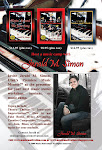.jpg)




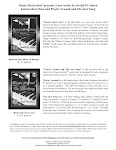
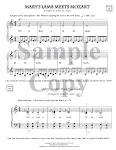

+latest+and+greatest+flattened+(smaller+size)+rgb+mode.jpg)
.jpg)


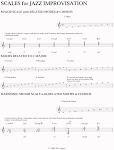
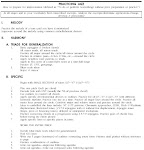


































.jpg)
No comments:
Post a Comment